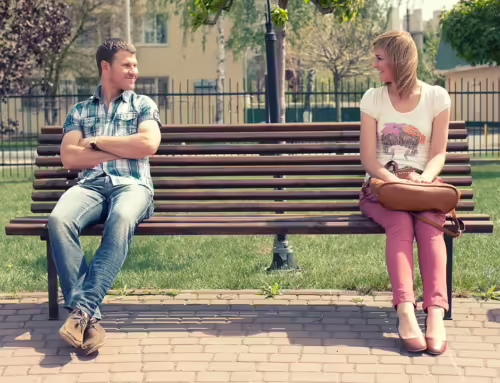Support groups are meetings that are guided by a designated leader — depending on the group, this leader might be a peer, a trained counselor, or a social worker — to facilitate a supportive, encouraging environment for people going through a similar struggle.
There are support groups for grief, addiction, eating disorders, mental illness and more. They are an integral part of many people’s journey to recovery, both emotionally and mentally. In this article, we will be specifically focusing on the benefits of both addiction and eating disorder support groups.
Neither is meant to be a replacement for therapy; these groups are intended to be complementary to rehabilitation and counseling. Specifically, support groups offer a level of empathy, understanding and guidance that our family and friends typically cannot.
How a support group can help you
Many people struggle to remain committed to their health after their initial recovery, and that’s why a support group can be so beneficial. It offers a long-term, judgment-free support structure you can turn to whenever you want or need it.
There are different reasons people seek out a support group. You might already know why you’re interested in finding one, or you might not be sure if they’re going to work for you.
A few key reasons people join an addiction or eating disorder support group include:
- Finding referrals for different treatments or additional support
- Searching for a fresh perspective on life post-recovery
- Seeking inspiration from people who are “on the other side”
- Wanting to end their feelings of isolation
Whether you are already convinced you want to join a support group or you’re still a bit on the fence, there’s a variety of benefits waiting for you.
Having a safe, judgment-free environment
One of the hardest things about struggling with an addiction or eating disorder is the lack of empathy we can often experience from even our closest friends and family.
A support group provides a safe, judgment-free zone for you to openly talk about your feelings, experiences and challenges in your life during and post-recovery.
Relieving anxiety, stress, depression
Healing is a difficult process; it can feel isolating, overwhelming, exhausting. While you might have friends or family who offer to listen, they often won’t know what to say or do to help you.
Being a part of a support group, being surrounded by people who are struggling in a similar way, can significantly help relieve any anxiety or depression you feel throughout your journey.
Gaining a new perspective on your life
It can be hard to see past our immediate suffering, to understand why we’re going through this or to believe it’s ever possible that something good can come out of our struggles. Sometimes you need a fresh perspective, and being part of a support group can provide all sorts of new outlooks, not only on your personal struggles, but on your life as a whole.
Learning from others who have gone through this first
Sometimes you can’t see a light at the end of the tunnel; recovery can feel like you’re wandering around blindly, bumping into walls, unsure if you’ll ever find your way out. But a support group gives you that light at the end of the tunnel to focus on.
Being surrounded by people who have gone through this before you, who can share their wisdom with you, who can encourage you when it all feels like too much because they have made it to the other side — it’s one of the most powerful benefits of a support group.
Establishing new coping mechanisms
An addiction, like an eating disorder, can be a coping mechanism or habit we turn to when we don’t know what else to do. Before we know it, they can spiral out of control.
A support group can help you discover new coping mechanisms and establish new habits to deal with the challenges in your life in a healthy and even productive way.
Ready to find a support group?
Whether you are looking for an addiction support group or an eating disorder support group, we are here to help you find the community that is best suited for you. The team here at Tapestry are trained professionals and experienced counselors who have found their passion helping people like you regain control of your life and reclaim your freedom.
You can reach us at any time by calling 828-490-4032.






